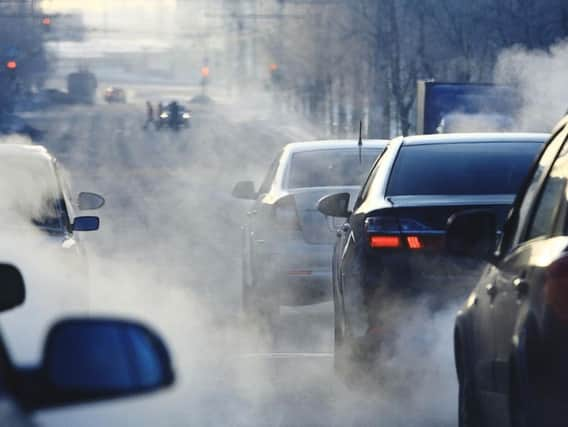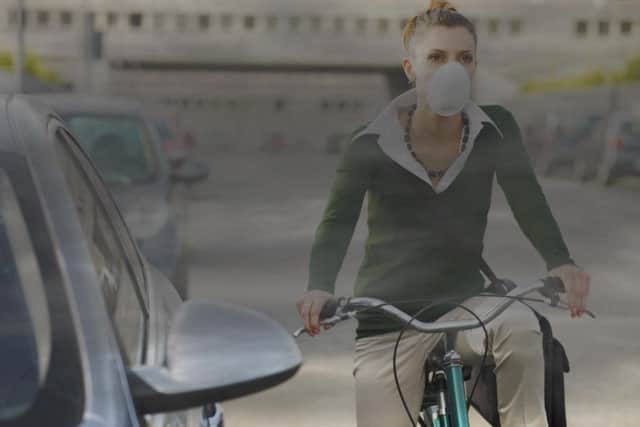Killer fumes blamed for road deaths


In Edinburgh, Glasgow and Aberdeen, levels of toxic chemicals in the air are way and above global ‘safe levels’.
So-called ‘silent killers’, like carbon monoxide (CO), oxides of nitrogen (NOx) and particle matter (PM) are pumped into the air as vehicle emissions, and have been shown to cause diseases like cancer as well as aggravate common conditions such as asthma and COPD.
Advertisement
Hide AdAdvertisement
Hide AdAnd the East Central Scotland Vehicle Emissions Partnership wants to do something about it.


“Air pollution, caused by transportation, accounts for up to 40,000 deaths within the UK each year.
“That’s more than 10 times the annual number of fatal road traffic accidents,” said a spokesman, Tom Burr, for the group.
In an ideal world, we would all have super clean, electric cars – and maybe one day we will – but in the meantime, what can we do to help reduce the number of toxic chemicals in the air around us?
1) Switch off


The Switch off and Breathe campaign is waging war on idling, and has urged drivers who are stationary for more than a few minutes to turn off their engines.
The campaign spokesman, Tom Burr, said: “Pollutants from emissions have a proven impact on our health and environment. This is something you can stop. With a small change to our driving habits – stopping vehicle idling – you can help protect your own health as well as those around you.”
Switching off the engine can also help drivers’ pockets. Idling for two minutes uses the same amount of petrol as driving one mile, so turning the key can save on fuel consumption.
“There are times when idling cam be acceptable, such as on very cold days to provide heat, when stationary at traffic lights or when a running engine is required to power equipment.
Advertisement
Hide AdAdvertisement
Hide Ad“However, by switching off your engine wherever possible, you actively reduce air pollution and its effects on you and those around you,” said the spokesman.
2) Keep it closed
Research published last year found pollution levels inside cars in traffic jams were up to 40% higher than those in free-flowing traffic.
Dr Prashant Kumar, senior author of the study, said: “Where possible, and with weather conditions allowing, one of the best ways to limit your exposure (is by) keeping windows shut, fans turned off and to try to increase the distance between you and the car in front while in traffic jams or stationary at traffic lights.”
Switching the fan on sucks dirty air from outside into the vehicle, meaning toxic chemicals build up inside.
“If the fan or heater needs to be on, the best setting would be to have the air re-circulating within the car, without drawing it in from outdoors,” Dr Kumar added.
3) Drive economically
Eco driving is about making simple changes to your driving habits. They can all add up to lower emissions, as well as lower fuel bills. In fact, transport companies and fleet operators can reduce their costs by up to 15% if they train drivers to drive economically.
Maintaining a steady speed at a low RPM, changing gears early and checking tyre pressures frequently all make a difference. Regular servicing makes sure your vehicle is running at its best.
Don’t wait for your engine to warm up, just go, and don’t carry around unnecessary weight, including roof racks. Slow down because high speeds burn the most fuel, and use air conditioning sparingly.
4) Buy with care, if you need to buy at all
Advertisement
Hide AdAdvertisement
Hide AdAnd when the time comes to get a new car, van, or any other type of vehicle, choose the most fuel efficient one you can. Shop around and do your research; then ask yourself, do you really need to drive, or can you get on your bike or walk?
=
For more on the Switch off a Breath campaign, including more tips of driving to reduce emissions, go to http://switchoffandbreathe.org/